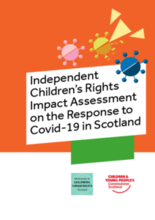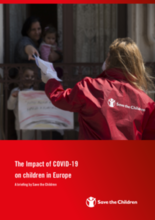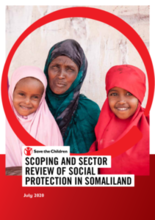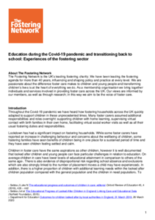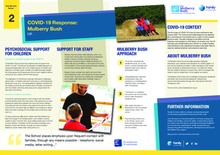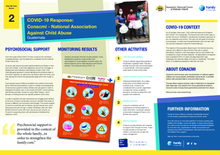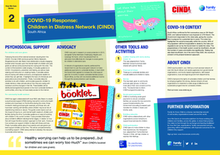Demographic Data:
|
Sources: World Bank, UNICEF, UNDP HDR 2015, DHS 2013/2014 |
Displaying 3801 - 3810 of 14348
This Independent Children’s Rights Impact Assessment identifies significant concerns around decision making and scrutiny and highlights the impact on children and young people of the responses to COVID-19 in Scotland.
This article argues that "we can't afford child protection" - there is a need for a fundamental shift, particularly in light of the COVID-19 pandemic, from focusing on risk and blame to supporting families and children - and discusses a framework for a new approach and strategies for change.
This paper is divided into two parts: The first details the evidence from the ground, painting the picture of life for children during the pandemic in different European countries with statistics and examples, and giving a set of recommendations on measures that national governments across Europe can take to help protect children from the worst impacts of the crisis relating to the economic impacts on families, loss of services, access to education and targeted measures for children in migration. The second part focuses on recommendations to the EU institutions on how EU policy and funding can support and complement these national-level actions in these challenging times.
This Scoping Study and Sector Review, produced under the guidance of the Ministry of Employment, Social Affairs and Family (MESAF) of Somaliland and Save the Children, is a strategic analysis of the existing policy landscape in Somaliland in order to inform the development of a Social Protection system.
This report from the Fostering Network presents findings from a rapid response survey for foster carers and fostering services across the UK that sought to understand fostered children’s experiences of education during the pandemic.
Family for Every Child, as part of its How We Care initiative, has developed a series on Psychosocial support for children and families during COVID-19, which highlights different approaches taken by three of its member organizations to providing essential psychosocial support to vulnerable children and families within the context of the pandemic.
Family for Every Child, as part of its How We Care initiative, has developed a series on Psychosocial support for children and families during COVID-19, which highlights different approaches taken by three of its member organizations to providing essential psychosocial support to vulnerable children and families within the context of the pandemic.
Family for Every Child, as part of its How We Care initiative, has developed a series on Psychosocial support for children and families during COVID-19, which highlights different approaches taken by three of its member organizations to providing essential psychosocial support to vulnerable children and families within the context of the pandemic.
This working paper gives an overview of the key issues and challenges facing both parents and after-school programs and child care providers as they try to ensure that school-age children are safe, supervised, and able to engage in quality distance learning while their parents work.
This report from Child's i Foundation provides an overview of the organisation's response to the COVID-19 pandemic in Uganda.

